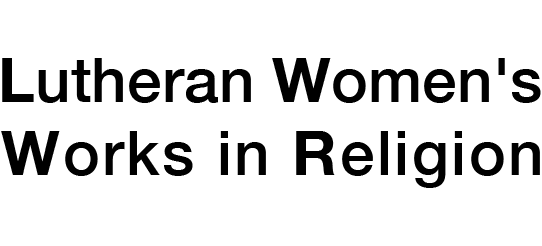Category: Theology
JOURNAL ARTICLES
Carol LaHurd "Holding Together the Gospel and Interfaith Relations in a Lifelong Journey" In Currents in Theology and Mission. vol. 32, no. 4, August 2005 : 245-255The essay consults interfaith encounters, diverse biblical portrayals of God, and theological responses to religious pluralism to answer the question of how a Christian can both be faithful to the Gospel and respond to persons of other religious traditions with respect, friendship, and shared social action.
In the face of ongoing ethnic and political conflicts worldwide, reading and discussion of scripture across religious boundaries is one strategy for defusing antagonisms. Drawing upon the author’s experience with both biblical interpretation and dialogue among Jews, Christians, and Muslims, this essay describes potential benefits and hazards of such interfaith reading and provides practical suggestions for initiating this form of dialogue encounter.
In the face of ongoing ethnic and political conflicts worldwide, reading and discussion of scripture across religious boundaries is one strategy for defusing antagonisms. Drawing upon the author’s experience with both biblical interpretation and dialogue among Jews, Christians, and Muslims, this essay describes potential benefits and hazards of such interfaith reading and provides practical suggestions for initiating this form of dialogue encounter.
Examining such texts as Jesus and the Samaritan woman in John 4, this essay surveys biblical treatments of the ethnic and religious “other” to provide resources for a current day hermeneutics of dialogue.
Guest editor for theme issue and author of article. LaHurd summarizes the global history of Muslim-Christian interaction, explores issues that can help or hinder future relations and cooperation among Muslims and Christians in the United States, and provides an appendix of resources for guiding such encounters.
In light of scriptural and theological traditions, LaHurd compares the concepts of repentance and forgiveness in Islam and Christianity, as well views of human sin and God’s response in each.
Reflecting on her own encounters with Arab Muslim women, LaHurd describes theoretical principles and present day diverse realities to illuminate some modern issues for Muslim women, youth, and families.
In the process of reviewing Jon D. Levenson’s 1993 The Death and Resurrection of the Beloved Son, LaHurd raises questions about the lenses through which Jewish and Christians scholars interpret each other’s biblical texts.
In contrast to popular misunderstandings of Islamic principles of warfare and of the concept of jihad, the article examines the layers of meaning of “peace” in Islam and the classical rules for external warfare in Islamic scripture and tradition.
The essay compares and contrasts the stories and significance of the Abraham figure in the scripture and traditions of Judaism, Christianity and Islam and proposes how Abraham can be both a divisive and unifying factor for contemporary dialogue and relations.

